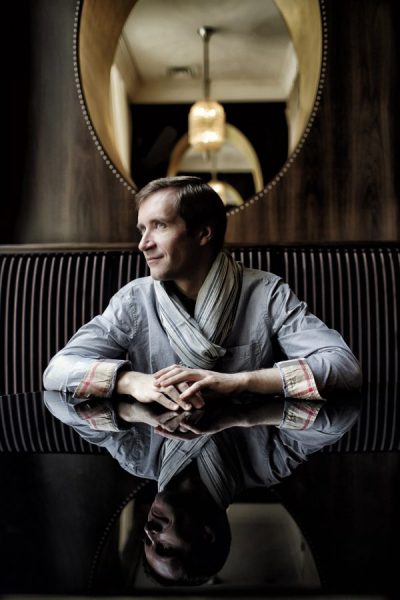@ Usher Hall, Edinburgh, on Fri 20 May 2016
The RSNO continues its Russian season with two works by titans of the twentieth century: Prokofiev and Shostakovich. They were radically different men, who did not really warm to each other. Prokofiev came from a privileged background and spent much time in Europe, whereas Shostakovich spent most of his time in Russia. The one thing that united them was the Stalinist purges of 1948, although they both reacted differently in musical terms: Shostakovich turning in on himself, whilst Prokofiev went ‘all out there’ with big, bold Soviet gestures. The two pieces in tonight’s concert are extreme expressions of sorrow and frustration.
Nikolai Lugansky begins tonight’s programme with Prokofiev’s second piano concerto. It is a huge and emotionally difficult work, coming as it did after the suicide of one of the composer’s close friends. It is also one of the most difficult concertos in the repertoire, more so than even Rachmaninov’s third concerto, which had been premièred just three years before.
Prokofiev’s music is spiky, unceasingly rhythmic in an exciting way, harmonically without compromise but very dark too. The enormous cadenza in the first movement is staggering, but Lugansky is on top form, and seems to deliver everything without any effort. It is interesting to note that many pianists have refused to play this work because of its technical challenges!
Shostakovich composed his eighth symphony a year after the glorious success of his seventh, but it was a totally different beast altogether, and listeners struggled to come to terms with a much darker musical language. It was decried by the cultural apparatchik Zhdanov as alien to the Soviet people. Yet, it reaches into what the composer knew people felt under the régime, but were afraid to say.
Unlike in the Prokofiev, there are long sinewy melodies, grotesque marches, a requiem over a repeated bass line in the fourth movement, and a huge climax at the end, before it sinks away to nothing. Special mention must be made to the cor anglais player of the RSNO, for a fantastic performance (in the opening movement), of one of the longest and most tragic solos for that instrument ever written.
This symphony is not often performed, but it is an eye-opener. Tonight’s works are wonderfully paired, and played with the sort of Russian spirit that hasn’t been heard since the days of Neeme Järvi, during his time as the RSNO’s Principal Conductor.
